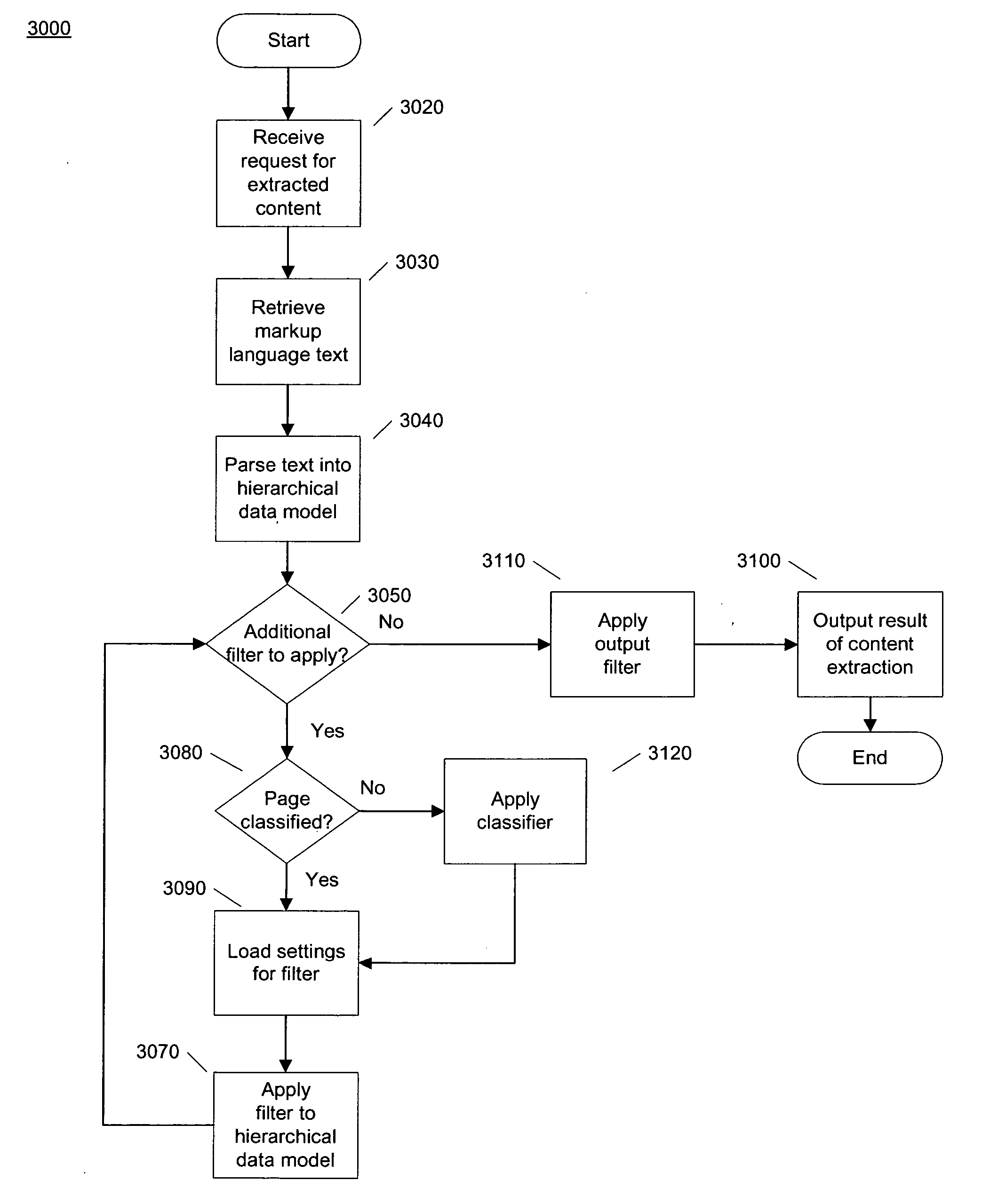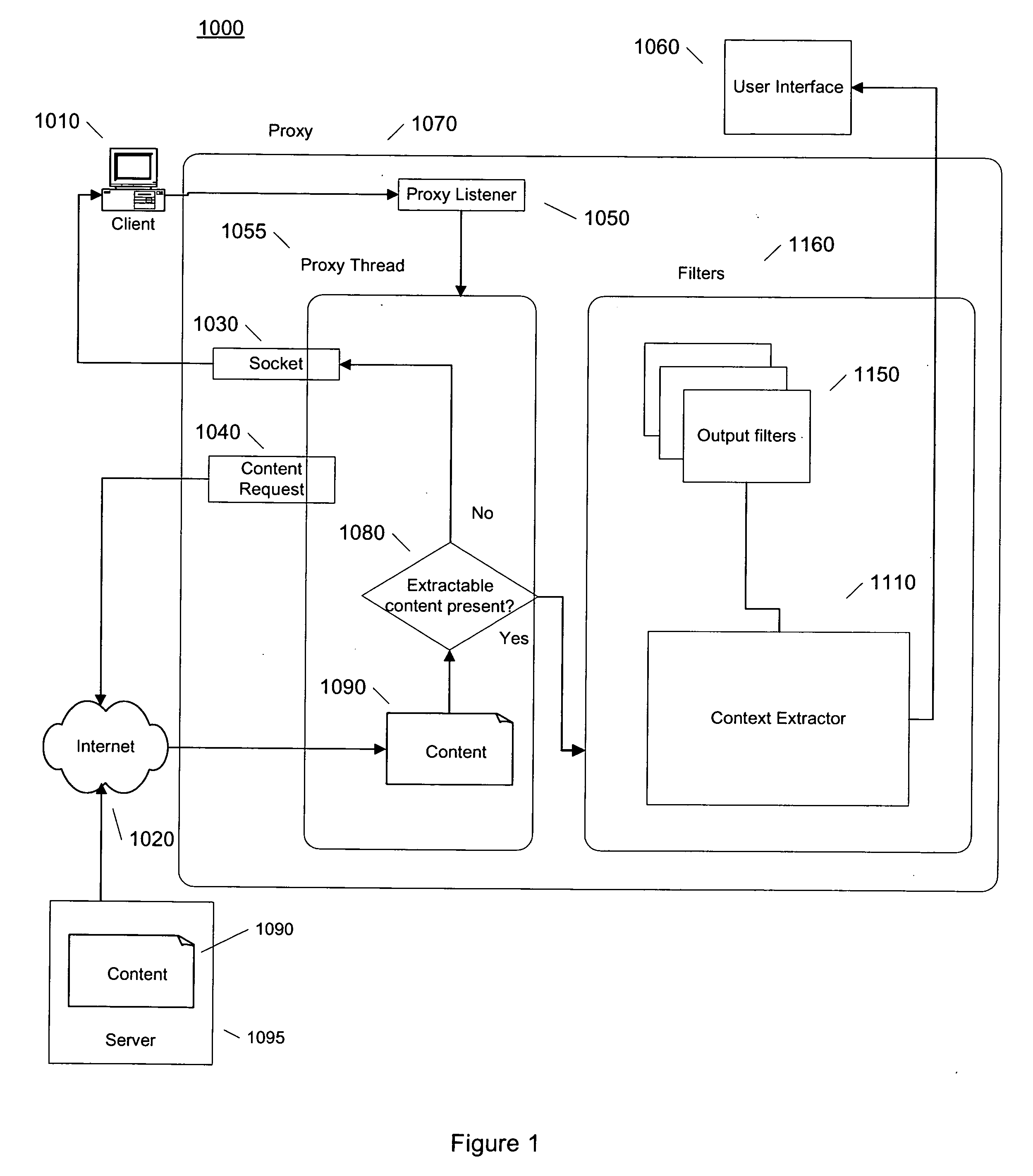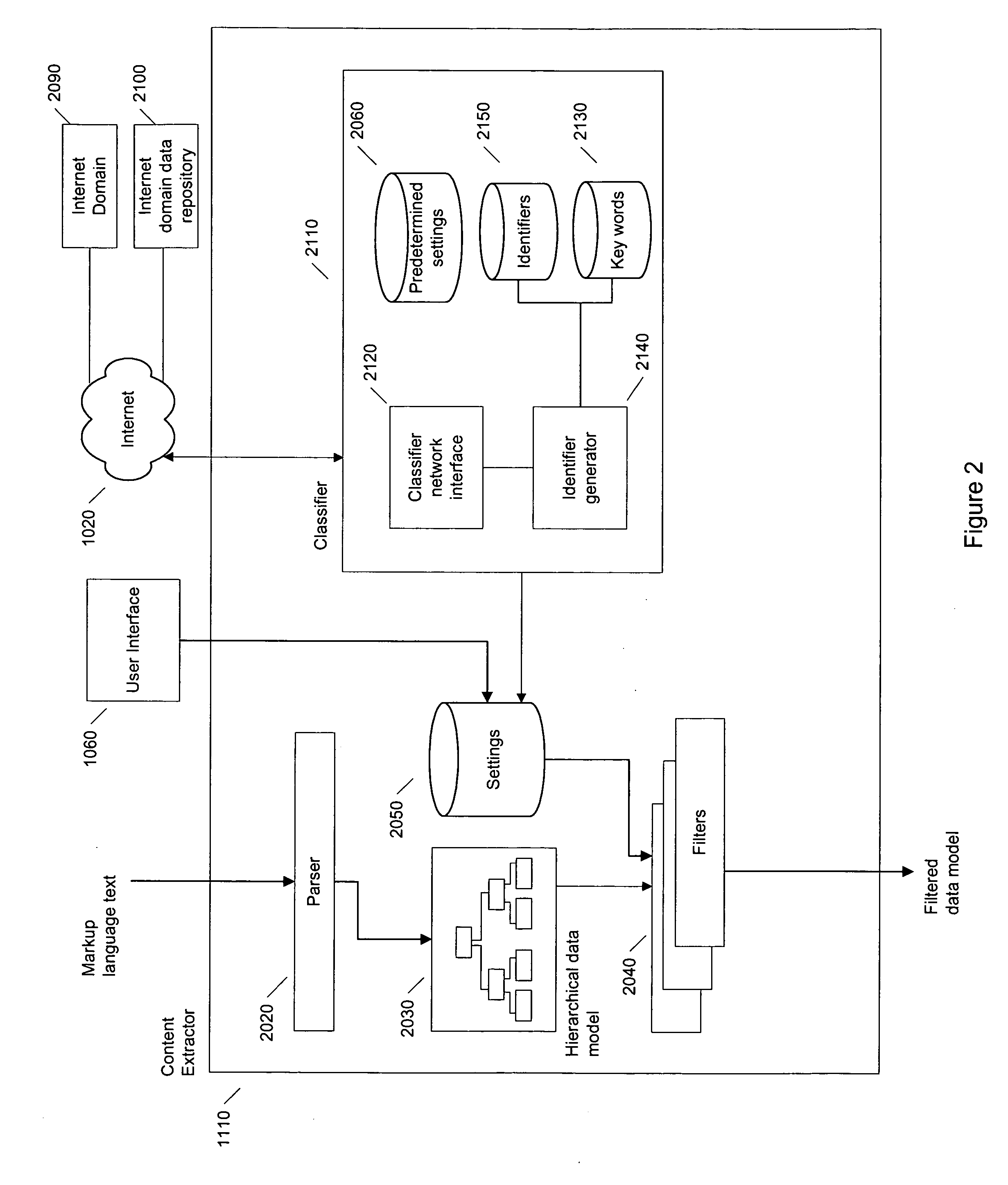Systems and methods for content extraction
a content extraction and content technology, applied in the field of data processing, can solve the problems of affecting the usability and original information of the original information, the complexity of the design and content of the internet site, and the cluttered nature of the website, so as to maintain the usability and original information
- Summary
- Abstract
- Description
- Claims
- Application Information
AI Technical Summary
Benefits of technology
Problems solved by technology
Method used
Image
Examples
Embodiment Construction
[0032] The Content Extraction System
[0033] Although some embodiments of the present invention are being described in the context of the web, websites and HTML content, the invention is not so limited. One of ordinary skill in the art will immediately recognize the applicability to any markup language, such as those described above, and to markup language text provided by a variety of sources, such as any Internet server and local files. Embodiments of the invention are just as applicable to XML pages served by a Gopher server or MathML pages served by an online database of mathematical journals, as to the more widely available webpages served from a web server.
[0034] The term “Internet domain” is used throughout the specification and drawings to refer to an identifier for a particular server. On the Internet this identifier may be called a domain name or a uniform resource locator. As a substitute, a server's Internet Protocol (IP) address may be used to identify a particular serv...
PUM
 Login to View More
Login to View More Abstract
Description
Claims
Application Information
 Login to View More
Login to View More - R&D
- Intellectual Property
- Life Sciences
- Materials
- Tech Scout
- Unparalleled Data Quality
- Higher Quality Content
- 60% Fewer Hallucinations
Browse by: Latest US Patents, China's latest patents, Technical Efficacy Thesaurus, Application Domain, Technology Topic, Popular Technical Reports.
© 2025 PatSnap. All rights reserved.Legal|Privacy policy|Modern Slavery Act Transparency Statement|Sitemap|About US| Contact US: help@patsnap.com



